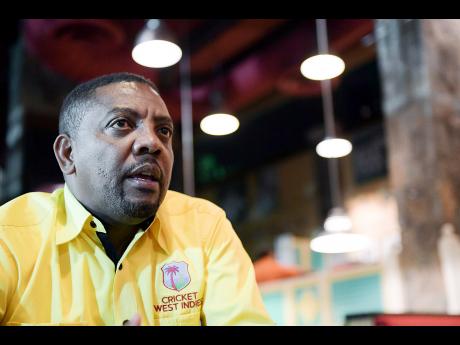Oral Tracey | Sporting bodies and their role in talent development
The recent pronouncement by Cricket West Indies President Dave Cameron that the regional governing body has spent millions of dollars on the development of players, thus the players should show more commitment to the West Indies cause, got me thinking.
Can the West Indies Cricket Board credibly take significant credit for the development of our players?
Certainly in terms of being a facilitator and an oversight body, the board through the granting of retainer contracts, the staging of regional competitions, as well as providing the platform for participation in international competition, president Cameron’s shout from the mountain top is somewhat understandable, but in reality it is more by default than by design that the board impacts the player development cycle.
How credible for example, are claims that the regional board over the years played substantial roles in the development of George Headley, Gary Sobers, Vivian Richards, Michael Holding, Courtney Walsh, Brian Lara, Chris Gayle, Dwayne Bravo and all the other top players to have emerged through the ranks?
Regional and national Governing bodies, comprise elected administrators and generally lack the level of funding needed to drive wholesale and proper development. Invariably governing bodies are mandated to provide structure and framework for the execution of the vision of their parent bodies, which in a broad sense contributes some, to player development.
However, Cricket West Indies like most governing bodies in most sports, had no choice and made no real tangible sacrifice.
Can the Jamaica Football Federation (JFF) for example claim a major role in the development of our international footballers simply because they invited them to represent the country? Can the Jamaica Athletic Administrative Association (JAAA) seriously claim their pound of flesh for the development of Veronica Campbell-Brown, Usain Bolt, Shelly-Ann Fraser-Pryce, Elaine Thompson and others, simply because they selected them and funded their preparation for the World Championships and the Olympics?
Real development of sportsmen and sportswomen takes place in their formative years, when they begin to learn the fundamentals of their respective sport, generally via organised school programmes and formal club competitions. Development then progresses in stages, with the elite talent generally matriculating into international duties, which is when the governing bodies simply do what they are obligated to do, in facilitating international competition.
There is a logical reason why, for example, the world governing body of football, FIFA, mandates that a percentage of the transfer fee of all transferred players, go to the parent club and not the parent federation. It is returns for the club’s role in the player’s development.
It is somewhat of a stretch to suggest that because the regional bodies and boards stage some training camps and facilitate players for international competition, that gives them the automatic right to the player’s unwavering commitment. It actually cuts both ways, the athletes and players cannot fulfil their international obligations without the administrators, and conversely the administrators would be redundant without the athletes and players.
Administrators have no more claim to the development of athletes than the athletes have to the legacy of the administrators. It is quite clear that Mr Cameron sought to appeal to the consciences of the players to whom he referred, but in actual reality, his assertion has fallen short of the credibility mark.
While their role is pivotal and contributes incrementally to the process, sports governing bodies, as a general rule, do not develop players, not in Jamaica, not directly and not significantly.
Private Clubs and private and public schools, have a much stronger and credible claim on significant roles in the player’s overall development, than any sporting association, including Cricket West Indies.

